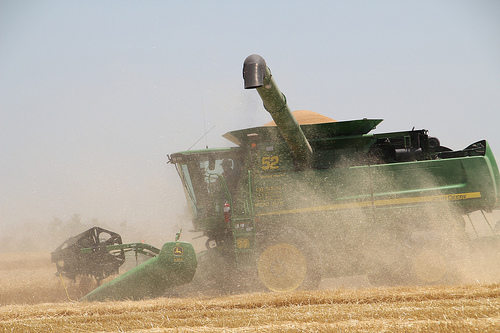
Agricultural News
Assessment from FAO/WHO Confirms Safety of Glyphosate, Contradicts IARC
Tue, 24 May 2016 10:53:26 CDT

WASHINGTON, D.C. A Joint Meeting of the Food and Agricultural Organization (FAO) Panel of Experts on Pesticide Residues in Food and the Environment and the World Health Organization (WHO) Core Assessment Group of Pesticide Residues (JMPR) has recently released an assessment finding that the crop protection compounds glyphosate, diazinon and malathion were "unlikely to pose a carcinogenic risk to humans from exposure through diet." JMPR's conclusion contradicts a 2015 report from the International Agency for Research on Cancer (IARC), whose parent body is WHO, which classified the three compounds as "probably carcinogenic."
CropLife America (CLA), the association representing the crop protection industry in the United States, welcomes JMPR's science- and risk-based assessment. JMPR's assessment confirms prior conclusions of regulators around the world including in the European Union, U.S., Canada and Japan. In November of 2015, a comprehensive review by the European Food Safety Authority (EFSA) concluded that glyphosate is "unlikely to pose a carcinogenic hazard to humans."
"Once again, an impartial peer review has found that IARC's classification of glyphosate, diazinon and malathion was, at best, questionable. And frankly, CLA views IARC's findings as an unnecessary threat to farmers and the global supply of food," stated Jay Vroom, president and CEO of CLA. "In the U.S., we are eagerly awaiting the U.S. Environmental Protection Agency's (EPA) new risk assessment for glyphosate. We urge EPA to consider the real risk of products and to use broad data sets, rather than responding to outside political pressure from activist groups."
Notably, IARC is not a regulatory body and it used a very narrow set of data to assess potential for hazard only. JMPR and regulatory organizations, such as EPA, assess the actual risk of exposure (related to use) of products or ingredients at appropriate use levels and human health risk. Over the years IARC has generated hazard identification classifications on many everyday products and their flawed process has led the organization to label many regular consumer good items as possible carcinogens, such as coffee, or pickled vegetables. IARC also identified bacon and other processed meat as carcinogenic. An IARC expert panel is meeting this week to evaluate and update the monograph on coffee.
"Cancer is a serious health concern, and all health officials must be careful to give people correct dietary advice to live long, fulfilling lives," stated Dr. Janet E. Collins, senior vice president of science and regulatory affairs at CLA. "IARC's many findings, and poor communication of the organization's role, have caused widespread confusion and are detrimental to encouraging people to eat a variety of nutritious foods. It is of the utmost importance that IARC change the way it communicates its hazard assessments. We want all consumers to know that they can feel confident in the food they eat, grown by U.S. farmers."
All crop protection products must undergo extensive health and safety assessments by regulators before they are approved for use. CLA members actively support science-based regulation, and CLA believes that the thorough risk assessment method used by most pesticide regulators is a more logical and scientific approach for product evaluation as compared to the limited studies and hazard-only evaluation process followed by IARC. For more information on pesticide regulation in the U.S., visit www.CropLifeAmerica.org.
Joint FAO/WHO Meeting on Pesticide Residues. Geneva, 9 13 May 2016, Summary Report. Issued May 16, 2016. http://www.who.int/foodsafety/jmprsummary2016.pdf?ua=1
2
Glyphosate: EFSA updates toxicological profile. November 12, 2015. http://www.efsa.europa.eu/en/press/news/151112
WebReadyTM Powered by WireReady® NSI
Top Agricultural News
More Headlines...




















